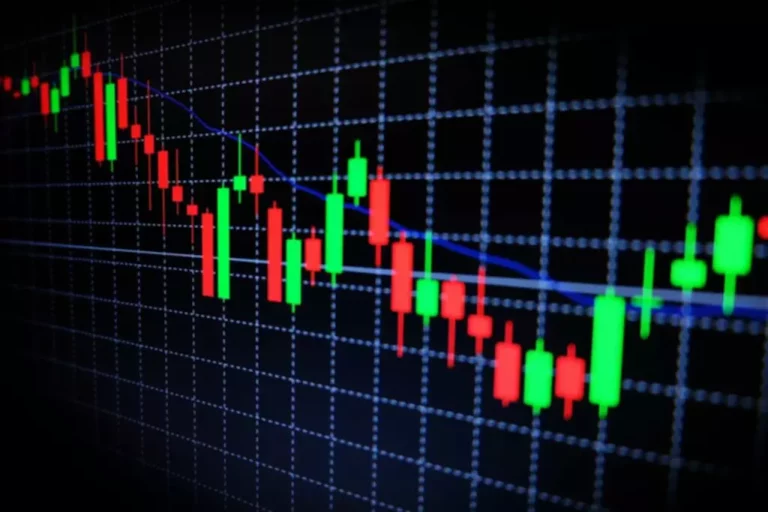Understanding Dark Pools: Mechanics, Types, and Market Impact
Content
These dark pools only generally have the bigger players involved which means that their orders can more favorably be matched by pool operators. Essentially, there is a better chance that the crossing orders at the midpoint will result in better bid ask prices for both the buyer and the seller in this equation. Block trading or block trades is simply a large number of securities being traded between two parties. While there may not be Decentralized finance any specific parameters for a block trade, it’s widely understood to be trades that are so large that they actually have an impact on the price of a security. Dark Pool Trading can be very advantageous to big-shot traders and institutional investors who have the capability to move and transact large volumes of shares.
- Centralized dark pools operate as an extra feature on prominent crypto exchanges, aiming to provide a secure and private environment for executing cryptocurrency trades.
- Dark pool trading is done privately between the buyer and seller, often with the help of brokers.
- Dark pool attract high-frequency traders looking to take advantage of market inefficiencies since they operate in secrecy.
- Dark Pools offer a more private and less volatile trading environment, as orders are matched anonymously and executed outside of public exchanges.
- The Financial Industry Regulatory Authority (FINRA) also regulates dark pools in the United States.
Can retail investors use dark pools?
Moreover, the reduced market impact of trading in dark pools can lead to lower transaction costs, benefiting both the buyer and seller. Electronic market makers are another type of dark pool, operated by firms that specialize in providing liquidity through high-frequency trading strategies. These entities use advanced algorithms to continuously quote buy and sell prices, facilitating trades for institutional investors. Electronic market makers what is a dark pool aim to profit from the bid-ask spread, the difference between the buying and selling prices. Their presence in dark pools can enhance liquidity and improve price discovery, making it easier for large trades to be executed without significant market impact. However, the reliance on high-frequency trading and complex algorithms can introduce additional risks, such as increased volatility and potential market manipulation.
To Ensure One Vote Per Person, Please Include the Following Info
Each one has its own unique characteristics and operates under different ownership structures. Now that you know what is a dark pool in trading (both crypto and traditional), you might be curious about where this unique concept came from. To truly understand the origin of dark pools, we https://www.xcritical.com/ must first journey back to the early 1980s[2].

Regulations and Oversight of Dark Pools
Understanding how dark pools operate can help you navigate the complexities of modern trading and make more informed decisions in the financial markets. A dark pool is a private and anonymous trading platform that allows institutional investors to trade large blocks of shares away from public exchanges. These pools are referred to as “dark” because the orders and transactions within them are not visible to the public until after they have been executed. Unlike traditional exchanges, dark pools offer a level of confidentiality that can benefit traders dealing with significant order sizes.
Dark pools offer institutional investors a range of benefits, including reduced market impact, increased anonymity, access to liquidity, and lower transaction costs. Dark pools provide access to liquidity for investors who need to trade large blocks of securities that may not be available on the public market. By matching buyers and sellers privately, dark pools can provide access to liquidity that may not be visible to the broader market. Although the name sounds like something out of science fiction, ‘dark pools’ are simply non-public securities exchanges. That said, dark pools have quite a bad reputation due to a lack of transparency and because many believe they allow institutional investors to manipulate the market, undermining trust in public investing.

Independent exchange or agency-owned dark pools are provided by individual companies who must register with regulators such as the SEC and FINRA. Broker-dealer dark pools can be operated by financial services firms and investment banks. They buy and sell stocks for their clients and may include proprietary trading, investing for direct market gain rather than earning commission. These private exchanges function differently from public stock markets, providing an alternative trading system for institutional investors seeking anonymity.
It is one of the largest dark pools in the world and offers institutional investors a high level of anonymity and liquidity. In New York Stock Exchange, these alternative trading systems provide off-exchange trading opportunities for investors while complying with regulatory requirements. Agency Broker or Exchange-owned dark pools are operated by stock exchanges or independent brokers. For more insights into trading systems, check out electronic market makers, which enable faster and more efficient trade execution through high-frequency algorithms. In addition to these specific regulations, there’s also a broader conversation about the role of technology in dark pool trading. As algorithms and automated trading systems become more sophisticated, regulators are grappling with how to ensure that these technologies are used responsibly.
ATS also provides traders with the flexibility to execute trades without having to follow strict rules and regulations that are imposed in traditional stock exchanges. One of the primary advantages of dark pools is the ability to execute large trades without causing significant price fluctuations. Imagine a large pension fund wanting to sell a substantial amount of shares in a company. If they were to place that order on a public exchange, the sheer volume could drive the price down, resulting in a less favorable outcome.
An example of dark pool trading could be an institutional investor, such as Warren Buffet, buying shares in a company like Tesla. Dark pools are marketplaces where the price is only disclosed after a deal has been executed. Yes, the SEC regulates Dark Pool Trading, but they have limited oversight compared to public exchanges. Dark pools are not required to disclose their trading volumes or the participants in their trades to the public, making it difficult for regulators to monitor them.
While the level of anonymity is appealing, the lack of visibility and certainty in dark pool trading can increase the level of risk. Retail investors do not usually need to block trade shares in dark pools in the way that institutional investors do. However, pension funds and asset managers can get better prices for their end clients, retail investors, by trading in dark pools during market hours. This is the main benefit of dark pool trading to ordinary investors, even though they can’t access dark pools directly using charts and indicators. Institutional investors avoid the market impact that comes with trading large volumes of shares on public exchanges by using dark pools.
Ultimately, understanding the regulatory landscape surrounding dark pools is essential for anyone looking to make informed trading decisions in this increasingly complex environment. As regulations continue to adapt, so too must the strategies employed by traders and investors alike, ensuring that they remain competitive in a rapidly changing market. This anonymity can help prevent price slippage, which occurs when the act of buying or selling a large quantity of shares affects the stock’s price. However, this very feature has raised eyebrows among regulators who are concerned about market transparency and fairness.
This increased oversight could lead to changes in how these venues operate, potentially impacting their attractiveness to traders. For instance, new regulations might require greater transparency or impose restrictions on trading practices, which could alter the landscape of off-exchange trading. For instance, some dark pools may provide limited information about trades after they are executed, while others might keep all details confidential.
A lit dark pool is a private exchange where buyers and sellers can trade securities anonymously, but the details of the transactions are made available to the public. By using dark pools, investors can avoid tipping their hand to other market participants and reduce the risk of adverse price movements. A dark pool is a private exchange where buyers and sellers can trade securities, usually stocks or bonds, anonymously, without disclosing their identity or the details of the transactions. The primary difference between dark pools and OTC is the fact that dark pools are completely invisible to the general public, while retail investors can still access over-the-counter (OTC) exchanges. Dark pools are non-public financial exchanges where institutional investors can trade large amounts of securities anonymously without impacting the broader market.
Although dark pools have limited transparency, you can still find some data on dark pool activity via specific data platforms and services and indirect effects on public exchanges. All in all, these examples highlight the diversity and innovation within the world of dark pool trading. However, it’s important to note that they represent just a fraction of the existing dark pool landscape. Numerous other dark pools, both independent and operated by exchanges, cater to the needs of a variety of market participants. By leveraging advanced technology and liquidity aggregation, sFOX seeks to provide traders with access to deep pools of liquidity while minimizing the impact on the broader market. The platform emphasizes security and compliance, catering to institutional investors and high-net-worth individuals looking to execute large cryptocurrency trades.
It’s important to note that the advantages of dark pools primarily benefit institutional investors who trade in large volumes. Retail investors typically do not have access to these private trading venues and rely on public exchanges for their transactions. Regulations such as the SEC’s Regulation ATS (Alternative Trading System) mandate that dark pools register as ATSs and adhere to specific reporting and operational standards. This includes periodic disclosures about their trading volumes, types of orders executed, and the identities of their participants. These measures aim to shed light on the otherwise opaque operations of dark pools, providing regulators and market participants with better insights into their impact on market dynamics.
